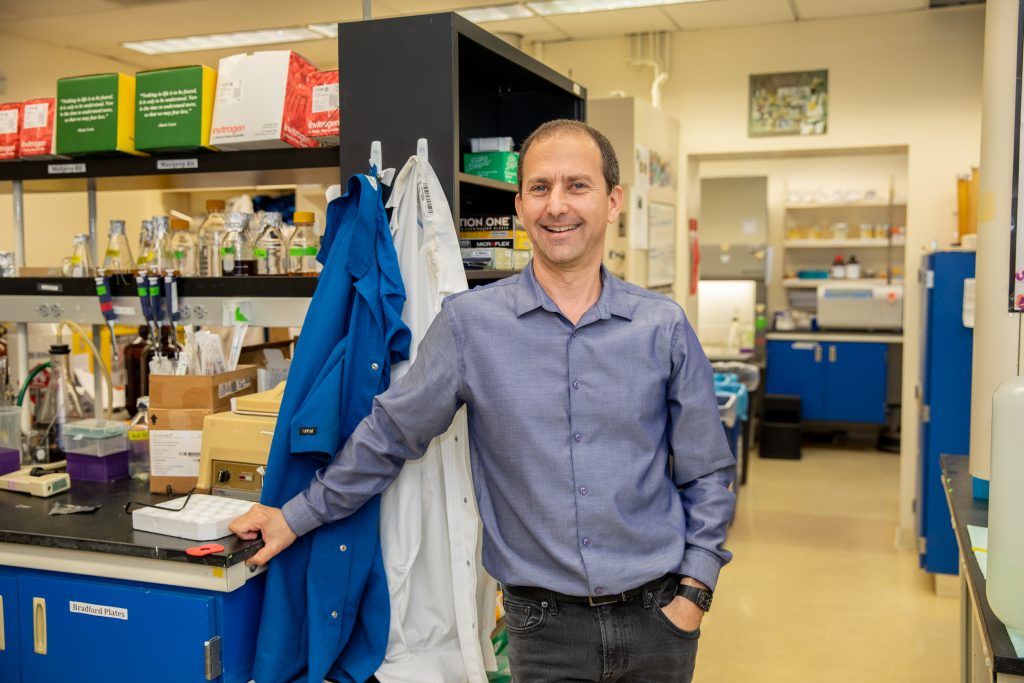
Molecular Biology and Biochemistry Professor David Fruman is the recipient of a new Impact Award from the Department of Defense’s Peer Reviewed Cancer Research Program (PRCRP). The PRCRP Impact Award supports research projects addressing critical scientific and clinical cancer issues. Professor Fruman’s project will investigate the mechanisms by which statins, drugs typically given to treat cardiovascular disease, affect cancer cells. The project will include a phase 1 clinical trial for statin use in combination with the cancer drug venetoclax (VEN) and also include collaborations with the UCI Cancer Center and the Long Beach Veterans Hospital.
Venetoclax is effective against blood cancers like acute myeloid leukemia (AML) and chronic lymphocytic leukemia (CLL). While VEN is a potent anti-cancer drug alone, or in combination with certain immunotherapies, researchers have identified new candidates to combine with VEN to increase its effectiveness against cancer. Professor Fruman has published data showing that statins can enhance VEN efficacy. With the PRCRP award, he will work to determine the molecular pathways that underlie statin anti-cancer properties.
The study aims to:
- Define the role of RHO family of GTPases in statin-sensitive survival signaling;
- Identify mitochondrial and transcriptional survival mechanisms modulated by statins;
- Define predictive biomarkers of statin responsiveness in primary AML cells; and
- Implement phase I safety trial of pitavastatin combined with VEN in AML, CLL and small lymphocytic lymphoma (SLL).
The studies under this award have the potential to increase the percentage of AML, CLL and SLL patients who achieve disease remission and establish new paradigms in the long-standing quest to understand how statins promote cancer cell death.
“My laboratory is thrilled to receive this DoD award, which will help us advance efforts to repurpose statins to improve the treatment of various blood cancers. While we will continue to focus on molecular mechanisms and predictive biomarkers of drug action, our clinical collaborators at the UCI Cancer Center and the Long Beach VA will be integral to clinical translation of our findings,” says Professor Fruman.
